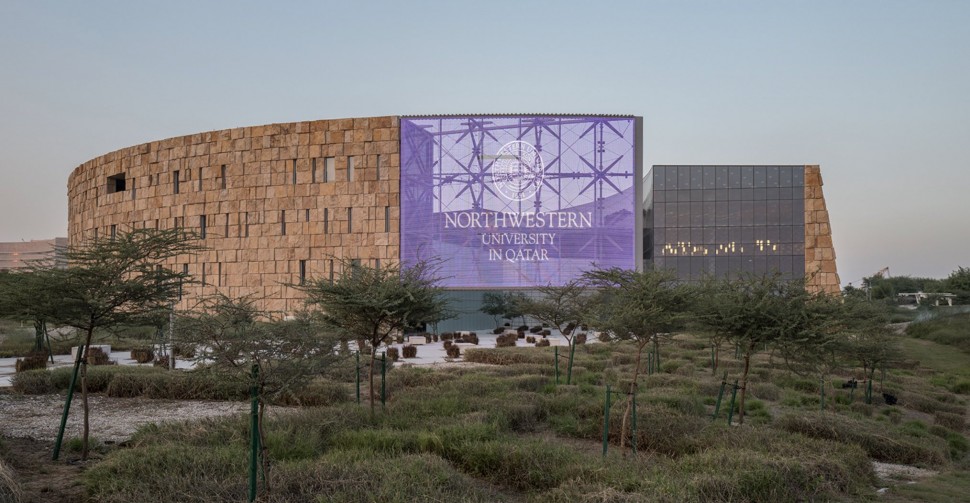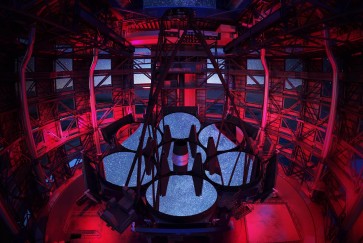Northwestern University in Qatar (NUQ) has launched a new research institute focused on the Global South, dean and CEO Marwan M. Kraidy announced. The Institute for Advanced Study in the Global South (IAS_NUQ) will produce and promote evidence-based research and storytelling focused on the histories, cultures, societies and media of the Global South.
Dean Kraidy said that the institute is a flagship initiative for Northwestern Qatar, “designed to amplify the reach and impact of our faculty and student research and mediamaking, and to enhance our reputation as a distinctive contributor to Northwestern University, the Qatar Foundation, and knowledge more broadly.”
“The institute has an inclusive vision of globality that recognizes the diversities and inequalities that shape our world,” Kraidy said.
To encourage students at Northwestern Qatar to pursue research projects focused on the Global South, the institute also announced one-year global fellowships for students to support original research that reflects the mission and core themes of the institute.
The institute will also host fellows who work on individual projects and collaborate in local and global research groups, produce multi-lingual and multi-modal publications and creative media and organize lectures, screenings, workshops and conferences.
Kraidy said that many stories about the Global South are told by authors, researchers and journalists in the West and added that this underrepresentation needs to be mitigated.
“The local creation of globally relevant knowledge and the establishment of South-to-South intellectual, creative and educational exchanges are vital to successful knowledge based-societies and sustainable communities,” Kraidy said. “With partners like the Qatar Foundation and the Buffett Institute for Global Affairs at Northwestern, IAS_NUQ will be transformative in shaping our understanding of the world.”
In its formative years, the institute will focus on four broad themes:
- Ways of knowing in the Global South: Starting with Qatar and the Arab world, how do we understand social and cultural change, the role of women and youth, and the vibrancy of thought traditions from the Global South? How do we create and share impactful local knowledge? And how do we convey it with evidence-based storytelling?
- Geopolitics, information and culture: How have nation branding, social media platforms and digital communication transformed media and sovereignty? How are notions of security and precarity changing in the world today? How does strategic communication change cultural perceptions and media strategies in international relations? How do we counter misinformation and propaganda?
- The global future: What are the challenges facing urban life? How do we best research sustainability and infrastructure, datafication and the future of work, learning, health and leisure? How is the gig economy evolving in the Global South? How do we learn to live with climate change as we endeavor to reverse it?
- Media work in the Global South: How are media careers changing? How are journalistic ethics, norms and practices changing? What is the present and future of media and creative industries (publishing, screen production, gaming)? What is the impact of platformization and streaming on cultural production, distribution and consumption?
To distribute the institute’s research and creative output more widely, Kraidy said that “any research about the Global South produced at Northwestern Qatar must be disseminated in both Arabic and English, and at least one-third language of relevance.” The institute will also make full use of digital technologies to broaden the reach and impact of its research output.
Kraidy also appointed Clovis Bergère and Marina Krikorian to help lead various aspects of the institute’s activities.
Bergère is assistant director for research at the institute. He will lead the mentoring of undergraduate and postdoctoral fellows, as well as publications and research produced by the institute. Under Bergère’s guidance, the undergraduate fellows will develop their concepts and deepen their research skills while also having the opportunity to publish or produce a scholarly output with the institute’s press and present it to the Northwestern Qatar community.
Krikorian is research manager for programs and projects at the institute. She will lead event planning, administration, outreach, fellow hosting and special projects. She will also serve as managing editor of IAS_NUQ Press and support other staff in developing and managing partnerships and collaborations with external researchers and research institutions.
The institute will work closely with the school’s research office, the DAMA Lab and Northwestern’s Roberta Buffett Institute for Global Affairs to advance the school’s academic mission. Collaboration with the DAMA Lab will focus on multi-modal projects and digital publications.
Kraidy was named dean and CEO of Northwestern Qatar in 2020 and early on decided to leverage the school’s unique community, identity and location to launch a research institute that advances the school’s intellectual vision and takes its students, faculty and staff to new heights.
“The future of education is global, interdisciplinary and digital,” Kraidy said. “The Institute for Advanced Study in the Global South positions Northwestern Qatar at the forefront of shaping that future.”


